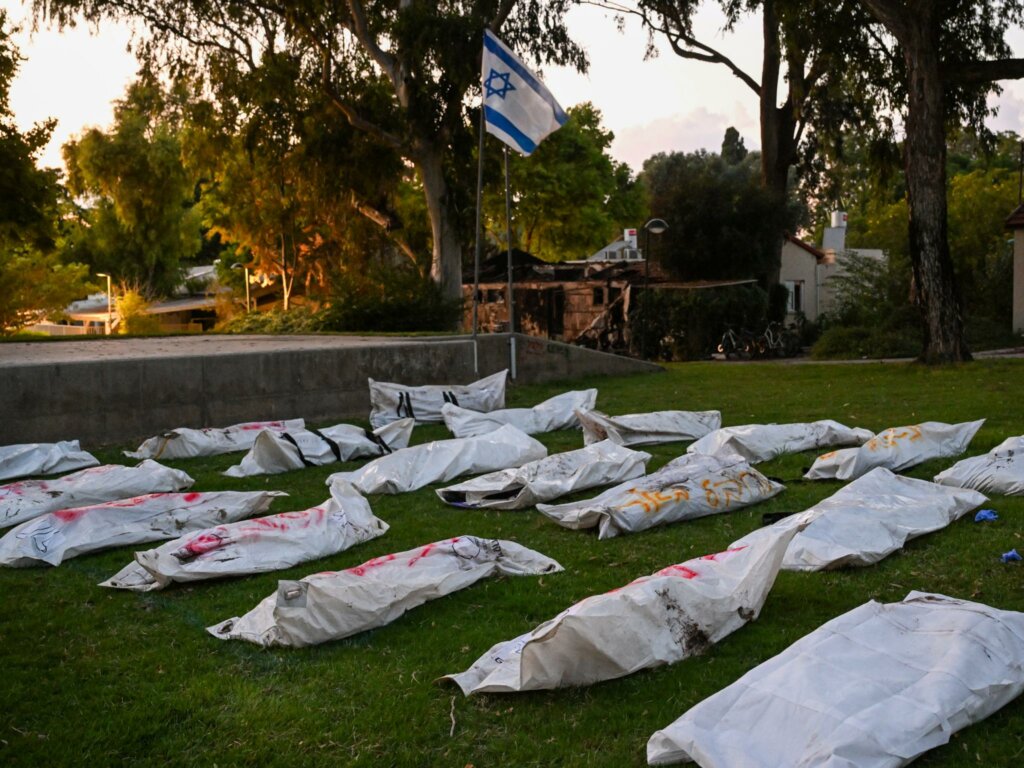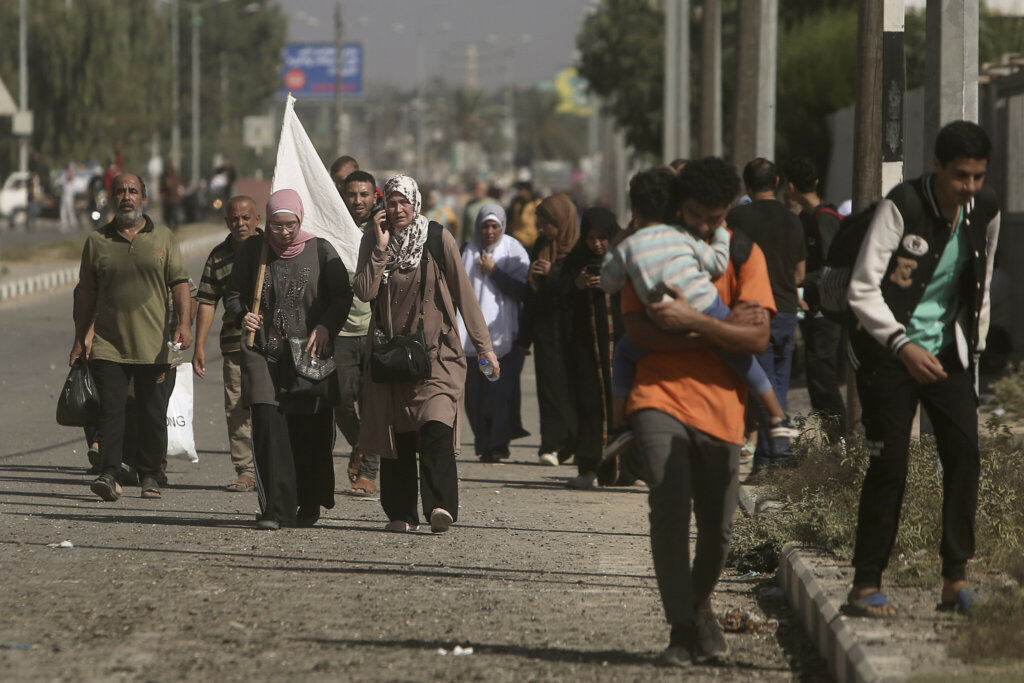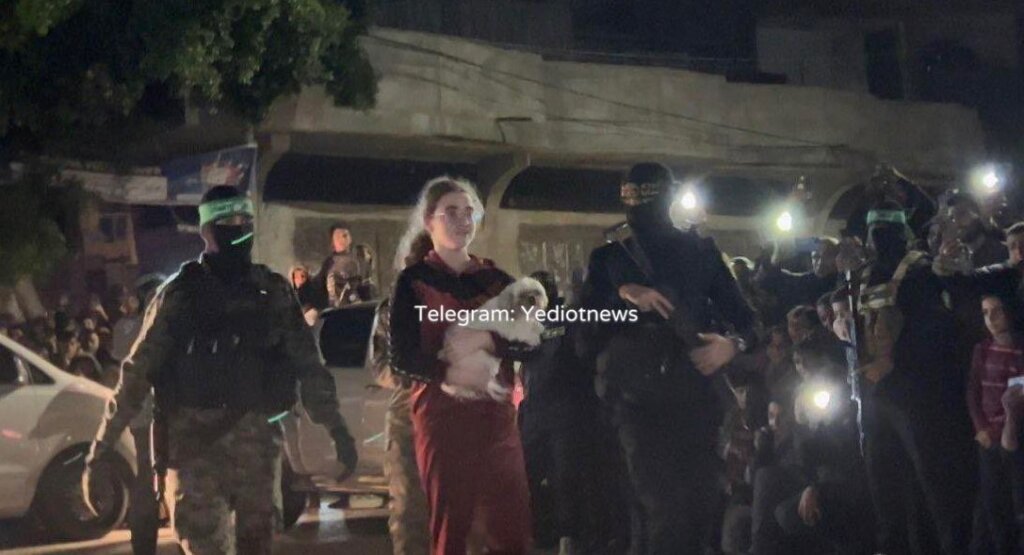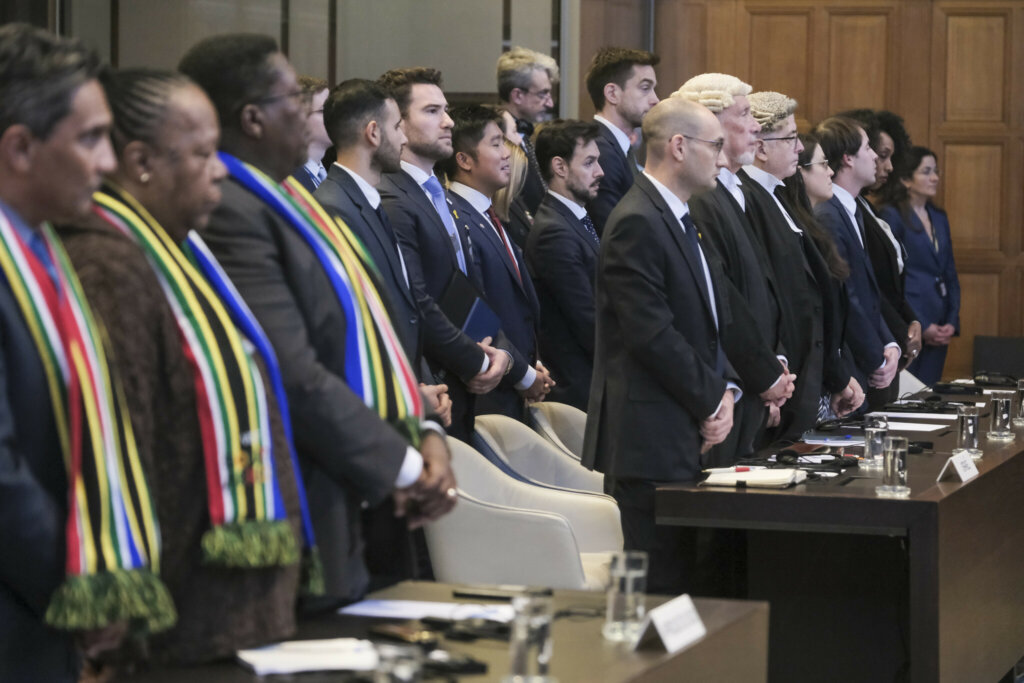Six Months of War in Gaza – A Review
Published on: 12.4.2024By David R. Parsons, ICEJ Vice President & Senior Spokesman

We recently passed the marker of six months since Hamas launched a bitter war with Israel in Gaza, triggered by the brutal massacres and atrocities of October 7. This is a good point to step back and assess where we are in this intense conflict, which does not have an official name yet. If it were to end today, the “Six-Month War” would be a fitting name, as it ensures this prolonged and undecided battle would instantly stand in contrast to Israel’s lightning quick and decisive victory in the “Six-Day War” of June 1967.
Now after six months, we are better able to answer certain key questions about this conflict: How was Israel so surprised by the Hamas invasion? Why has Hizbullah not fully joined the war? How has Israel done so far in Gaza? Where do things currently stand and where are they heading? And if the war were to end today, who would be the real winner?
How was Israel so surprised by the Hamas invasion?
In due time, there indeed will be an official Commission of Inquiry and other investigations as to how Israel was caught so unprepared for the massive Hamas attack of October 7. But we do know enough already to make some firm conclusions.
First of all, Israeli political and military leaders were guilty of “group think” on Hamas; namely, a prevailing belief that the Islamist terror militia was deterred by Israeli military power and especially its defensive innovations to deal with the threats of rocket barrages (Iron Dome), and terror tunnels (ground penetrating radar). There also was a consensus that Hamas was too busy governing Gaza, which was undergoing a building boom, offering a windfall in the pockets of Hamas leaders. So, despite Israel’s built-in ombudsmen mechanism to always challenge the accepted wisdom of the military and intelligence communities – set up specifically to deal with the intel failures of the Yom Kippur War exactly 50 years ago – the group think held. And numerous warning signs were roundly ignored, most notably the repeated alerts from female IDF observers watching the security cameras along the Gaza border that something serious was afoot on the other side of the fence.
In addition, Israeli society was fairly exhausted from a year of intense debate and political brinksmanship over the government’s proposed judicial reforms. There was finally a respite from the political in-fighting during the Knesset recess over the fall High Holy Days, and everyone knew Simchat Torah would be the last day to rest before the debate heated up again. So, there was an added sense of relaxation prevailing that particular Shabbat morning.
Still, Hamas fed into Israel’s wrong thinking and admittedly can claim some success in its deceptions that an attack was looming. First, they managed to keep the broad military assault a tightly-held secret among only its top four or five leaders inside Gaza. Further, they held back last fall on their usual rioting and incitement on the Temple Mount during the major Jewish holidays. They also went quiet on the fire balloons and “March of Return” activities along the border fence with Israel. When Hamas did not join the rocket war launched by Palestinian Islamic Jihad last May, that also lulled Israel into thinking Hamas was not interested in war with Israel.
Hamas and Iran also increased their recruitment, funding and arming of terror cells in the West Bank over the preceding months, which prompted the IDF to redeploy many of its forces along the Gaza border to guard the Jewish communities in Judea and Samaria.
Given all this, the so-called “al-Aqsa Storm” was more successful than Hamas expected. They “got lucky,” as some have said. The result was over 1,200 Israelis dead and more than 250 taken hostage into Gaza, while all of Israel was suddenly in great fear of more massive rocket barrages and even nationwide home invasions – including by Hizbullah units infiltrating from Lebanon as well.
Even so, the carnage and death toll could have been much worse, as the great secrecy by Hamas also hurt them. Hamas and Hizbullah had been coordinating ever more closely with Iran to form a ‘United Front of Resistance’ against Israel, and there are indications they were planning a simultaneous multi-front assault on Israel – though I do not believe a date certain had been set. However, Hamas jumped the gun, and the October 7 attacks not only surprised Israel but Hizbullah as well.
So, why has Hizbullah not fully joined the war?
Caught off guard and unprepared for an immediate strike, Hizbullah watched developments in southern Israel those first hours and days to see how Hamas was faring. But their delay cost them the opportunity to instantly inflict widespread damage on Israel from the North. And they did not fully join the battle for two reasons:
1) Israel quickly mobilized 350,000 reservists and sent extra forces to the northern front.
2) Israel also evacuated 120,000 civilians from communities close to the Lebanese border.
This meant Hizbullah’s elite, specially-trained Radwan forces, veterans of the Syrian civil war, would face much tougher odds in trying to mimic the Hamas invasions of civilian communities in the South. So, Hizbullah has been content to “contribute” to the Hamas war effort by simply pinning a significant number of IDF troops in the North through a limited artillery duel along the immediate border area. This has proven to be a very critical decision – surely made in consultation with Iran – which has signaled that neither is clearly wanting to get into a major direct war with Israel. It has worked to the IDF’s advantage and left Israel with the initiative to smash Hizbullah at a time of its choosing – some say around May or June. Even so, the calculations and risks for Israel of attacking Lebanon are very different than Gaza and must be weighed carefully.
With the fighting mostly confined to Gaza, how has Israel done there so far?
As in the past, the IDF divided Gaza into thirds and first dealt with Gaza City in the north, then central Gaza, and more recently with Khan Younis in the south – which some consider the real stronghold of Hamas. The IDF assesses that it has killed or wounded about two-thirds of the Hamas fighting force in Gaza. They estimate 13,000 Hamas militiamen have been killed during the ground operations in Gaza, plus 1,000 more inside Israel on and after October 7. In comparison, the IDF has lost just over 260 troops in Gaza – about one-third of their initial expectations. The Israeli military also has exposed and destroyed hundreds of miles of terror tunnels – though it may only be half of what is there.
Nonetheless, there have been several key impediments to greater success for Israel:
1) Most Gazan civilians were left on the battlefield, which Hamas has used as human shields.
2) Israel in many respects is losing the PR battle, as the world is wrongly insisting they are deliberating starving Gazans and committing genocide, and thus there are calls for arms embargoes and other punitive measures against Israel.
3) Finally, some 130 Israeli hostages are still in captivity.

I believe, the international community made two major decisions from the start of this conflict which have resulted in this hampering of Israel’s war effort, and directly contributed to the rising civilian death toll in Gaza. First, the world insisted that all Gazans had to stay inside the Strip. This was unprecedented in the history of modern warfare, that a civilian population was forced to remain on the field of battle. Thus, the international community bears much responsibility for any and every civilian casualty in Gaza.
Second, to this day neither the United Nations Security Council nor the UN General Assembly has condemned Hamas for the grave and obvious atrocities it committed on October 7. That is unpardonable! And it has sent a message to Israelis that their lives do not matter, that Jewish blood is considered cheap, their women are free to rape and their babies to decapitate. Therefore, I do not blame Israelis for rejecting the advice and criticism of other nations concerning their conduct of this war. Perhaps if the world had shown more sympathy and understanding for what Israel suffered that day, then it may have made a difference. Is it too late to apologize and do right by Israel? Maybe!

So, where do things currently stand and where are we heading?
Currently we are in a strange lull, with Israel waiting for a hostage deal or deciding to go into Rafah, the last Hamas stronghold in Gaza where many of the hostages may be held. There have been growing tensions between Israel and the Biden administration over Jerusalem’s war policies in Gaza, especially the planned Rafah operation, which Washington fears will endanger all the Palestinian war refugees huddling there. But Israel has visibly changed its strategy over recent days – probably due less to US pressure and more to the tragic IAF strikes which killed seven aid workers with World Central Kitchen some ten days ago. They are flooding Gaza with food and other aid, and they have withdrawn most IDF forces from Gaza. My sense is this is largely related to trying to improve conditions to secure a hostage deal with Hamas. We shall see!
In any case, things are looking better for Israel, as the US is still sending weapons, while reports indicate Indonesia, of all nations, is wanting to normalize relations with Jerusalem – despite the war. So, things can turn around quickly for Israel. Nonetheless, The Jewish state and people will be facing a torrent of lawfare claims arising from this war for many years to come.
Finally, if the war were to end today, who would be the real winner?
Of course, Hamas would claim victory, simply because it has survived to fight another day! But with the admittedly high death toll in Gaza, many parts of the Strip in shambles, and most Gazans shell-shocked from six months of intense bombardment, it is hard to see how Hamas can credibly claim victory in front of those they lord over.

For its part, Israel could claim a partial victory in Gaza as of now. The nation recovered quickly from the setback of October 7. The IDF has done historically well militarily in terms of engaging in complex urban warfare under difficult conditions, and has come out with roughly a one-to-one ratio of combatants to civilian casualties. The global average in urban warfare settings over recent decades is 18 civilians for every combatant killed. Hopefully, that achievement will be widely recognized, rather than the lies and blood libels of genocide and ethnic cleansing.
Israel also has been united by this conflict, but it remains a fragile cohesion. The nation needs to move on soon to new elections that allow a young new leadership to take charge from among those who have fought and achieved this pending victory. And of course, this victory will not feel complete until all the hostages are returned.
Post-war, Israel must continue to insist on dismantling UNRWA or at least significant reforms to the agency overseeing Palestinian refugees. Most importantly, after this war we must never hear again of the Palestinians’ claim to a right of return! Who in their right mind would agree to let bloody-thirsty, brain-washed terrorists like Hamas come live inside Israel. My hope is that October 7 has forever disposed of the so-called Palestinian right of return.
Finally, there are a lot of good people and world leaders out there who have sympathy for the people of Gaza. Why not take some in as refugees?! Many countries took in war refugees from Syria. Are the Gazans no less deserving of a chance for a fresh new start should they voluntarily desire to seek it elsewhere? Six months into this war, it is time for the global community to truly demonstrate compassion for the Gazan people by taking some in. Otherwise, you appear to just be weighing in on this battle to malign Israel.